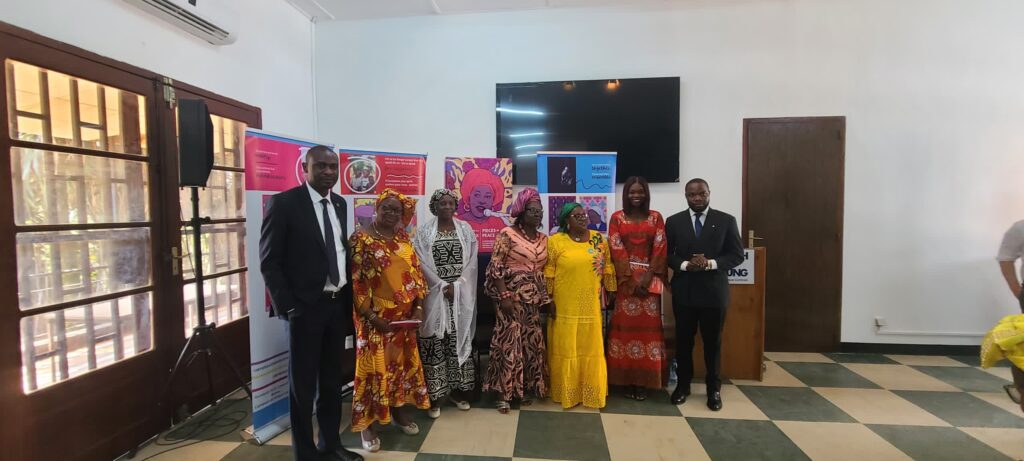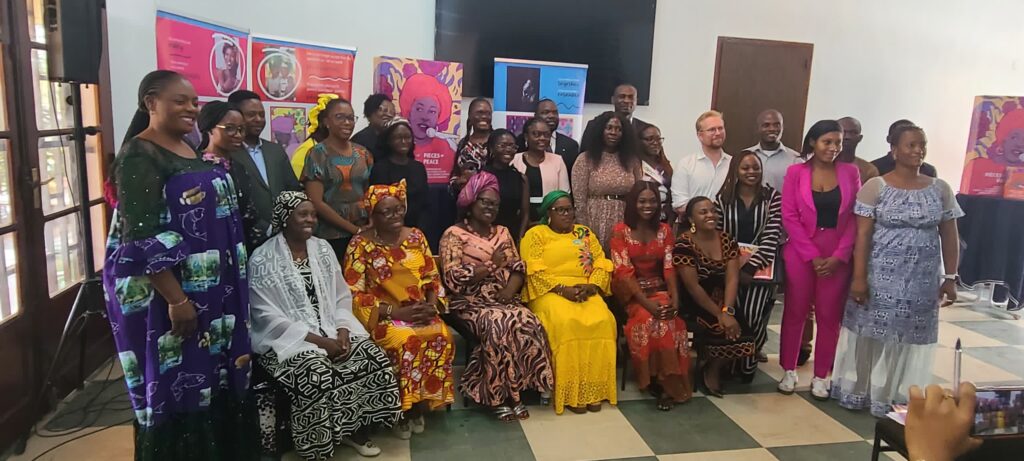The National Women’s Convention for Peace in Cameroon recently launched a comprehensive compendium of draft documents detailing their efforts and past achievements in promoting peace dubbed “Pieces of Peace”.
The event took place at Friedrich Ebert Stiftung head office in Yaounde and was attended by members of the diplomatic corps, the United Nations, key partners, allies, and the press, who all gathered to reflect on the convention’s transformative impact and potential.
The convention which brought together women from across Cameroon, made significant strides in addressing various conflicts in the country.

“Pieces of Peace,” a 22-page document, encapsulates the activities and accomplishments of the convention, signalling to the state that women are ready for formal peace negotiations.
Leading women, known as The Council of the Wise, delivered keynote speeches on the convention’s projects. Dr. NGOME Felicia, CEO of Gender Development and Peace Foundation (TERFEL), highlighted the first convention held from July 29-31, 2021, with 1800 women participating. She emphasized the critical role women play in peacebuilding and the need for their representation in conflict resolution initiatives.
“When it comes to official negotiations, women are underrepresented. That is why these voices came together so that we can be part of the process of attaining peace. Women are capable. We have the voice, the capacity, and everything it takes to make things work,” Dr. NGOME said.

Dadai Catherine epse Kolyang reported on peace conferences held in Limbe and Maroua, where members worked with refugees and displaced persons. She underscored the life-changing impact of these conferences on the affected women.
Natalie Nahoua on her part provided an account of a parliamentary encounter where victims of violence shared their stories with Members of Parliament, challenging decision makers to use their power and privilege to work for peace.

Another important activity discussed was peace negotiation. Clotilda Andiensa recounted the meeting between the government and the separatist fighters from the Anglophone regions, which resulted in ten principles for future peace negotiations. “If you want peace, you must learn to devise different strategies to talk to the people who are in conflict or who are in war. That is why the Women’s Convention for Peace came up with different strategies starting from the Women’s Convention, visiting the parliament, going to Limbe and the Far North and right now planning to go right to Bamenda,” explained Clotilda.
As the launch concluded, participants stressed the importance of planning for post-conflict reconstruction, posing the crucial question: “What happens after the crisis has ended?”
The National Women’s Convention for Peace was first conceived in 2019 and officially launched in 2021, becoming the largest group of women advocating for peace across Cameroon’s ten regions.
